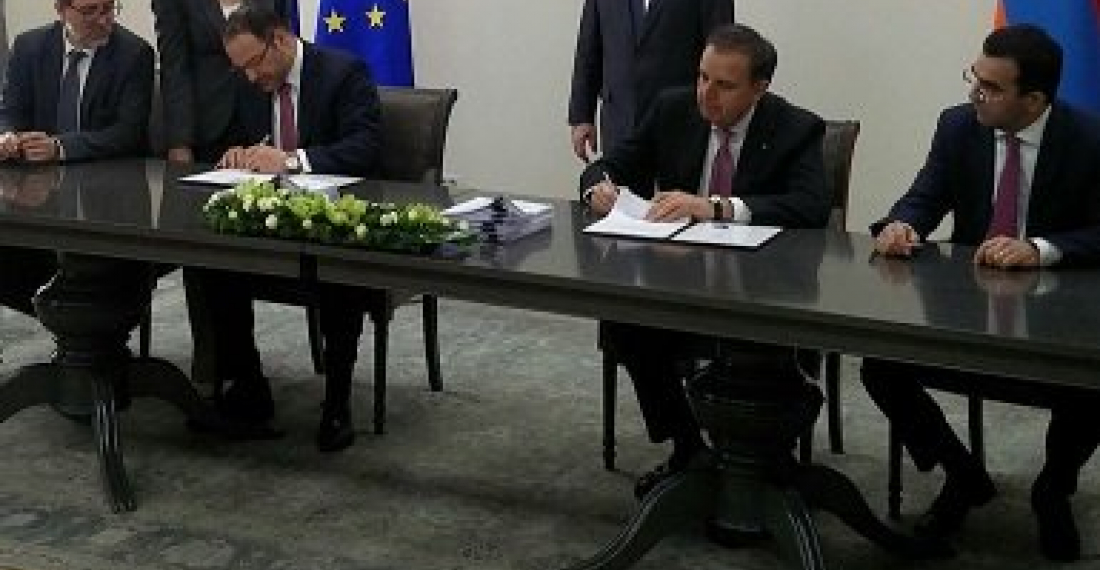After four years of uncertaintly following Armenia's decision to abort at the last minute negotiations on an Association agreement with the EU the two sides now have a new framework of co-operation. The European Union and Armenia on Tuesday (21 March) issued this joint statement:
On 21st of March at a ceremony held at the Ministry of Foreign Affairs in Yerevan, on behalf of the Republic of Armenia Chief negotiator Garen Nazarian, Deputy Foreign Minister and Trade lead negotiator Garegin Melkonian, First Deputy Minister of Economic Development and Investments and on behalf of the European Union (EU) Chief negotiator Luc Devigne, Deputy Managing Director in the European External Action Service and Trade lead negotiator Petros Sourmelis, Head of Unit in the European Commission, initialled the Armenia - EU Comprehensive and Enhanced Partnership Agreement (CEPA).
The Agreement will be an important step to broaden the scope of bilateral relations between Republic of Armenia and the European Union.
It will strengthen the political dialogue and set a solid basis for the continuation of economic and social reforms. Strong commitments to democracy, human rights, and the rule of law, underpin the new agreement and Armenia-EU future cooperation. The CEPA will also create the framework for stronger cooperation in sectors such as energy, transport and the environment, for new opportunities in trade and investments, and for increased mobility for the benefit of the citizens.
Relations between Armenia and the EU have seen a significant strengthening in recent years. The CEPA is a joint endeavour, which will further deepen their relations within the larger framework of the revised European Neighbourhood Policy and Eastern Partnership. The CEPA will offer EU and Armenia a platform to bring their relations to a new, higher level.
Sources close to the European Union told commonspace.eu that it will take some time before the agreement is signed, ratified by all the EU member states and starts to be implemented.
source; commonspace.eu
photo: The initiallling of the new Armenia - EU Comprehensive and Enhanced Partnership Agreement at the Foreign Ministry in Yerevan on Tuesday 21 March 2017.







